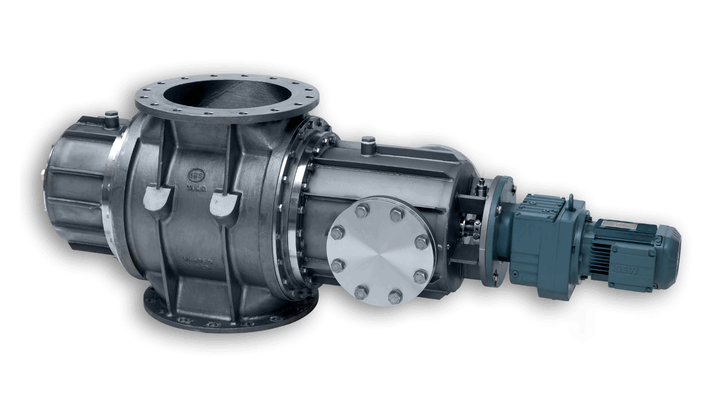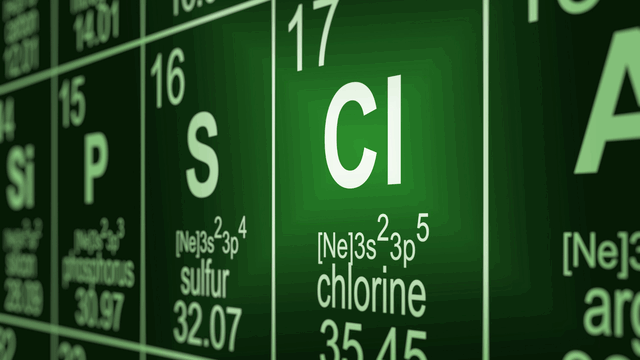Safe rotary valve for toxic process gasses
Titanium dioxide can be produced in several ways. One of the methods uses chlorine gas. This gas is highly aggressive and dangerous to life. A rotary valve for this process must therefore meet extremely high requirements. A challenge for which TBMA has developed a smart and safe solution.
Special alloy
Even stainless steel AISI 316 is not resistant to the yellow-green, very aggressive chlorine gas (Cl2) that is used for the production of titanium dioxide (TiO2). The installation components must therefore be manufactured from an even higher quality material. This also applies to the high-end, flameproof H-AR350 drop-through rotary valve from TBMA in the process. It is made from a very special alloy of (among others) nickel, chrome, molybdenum and niobium. This material has excellent resistance to various corrosive media - including chlorine gas - and is resistant to high pressure.
PRESSURE CHAMBER | The chlorine gas is not only aggressive but also extremely poisonous. A leak in the process would be life-threatening for the operators. The valve is therefore fitted with extra lantern covers. These enclose the basic covers including bearings, special shaft seals and the coupling on the drive side.
The process pressure in the production line is above 2 barg. By applying a pressure within the lantern covers that is more than twice as high, a pressure chamber is created, as it were. In case the seals of the rotor start to leak, the overpressure ensures that no chlorine gas can leak out from the valve. At most, nitrogen leaks into the valve. Nitrogen is inert and does not affect the product, unlike, for example, oxygen.
Detection
Any leakage of nitrogen from the pressure chambers to the process is detected with a flow meter. In addition, a nitrogen detection system has been placed in the immediate vicinity of the installation. Leakage of nitrogen from one of the pressure chambers to the outside is thus detected in good time.
REINFORCEMENT RIBS | The lantern covers do not come into contact with the chlorine gas and can therefore be made of stainless steel AISI 316. Special reinforcing ribs ensure that the covers can withstand the high pressure. The covers are fitted with inspection hatches on the drive side for easy access to, among other things, the coupling with the drive. Due to the high pressure, the hatches are attached with 8 sturdy bolts. The valve is suitable for product temperatures up to 250 °C.
Critical processes
The special-duty H-AR drop-through valve is also suitable for all critical processes involving toxic gasses and high process pressures. The first valves in this version have been operating satisfactorily for twenty years. In recent years, the customer, a major producer in the chemical industry, has ordered the same version a number of times.
CUSTOMISATION | TBMA does not shy away from customisation if required by the application and/or production process. The chlorine-resistant drop-through rotary valve is a good example of TBMA's expertise, bringing together more than half a century of experience in bulk material technology, process engineering and the design and construction of rotary valves.
Check out more custom-made special-duty rotary valves

